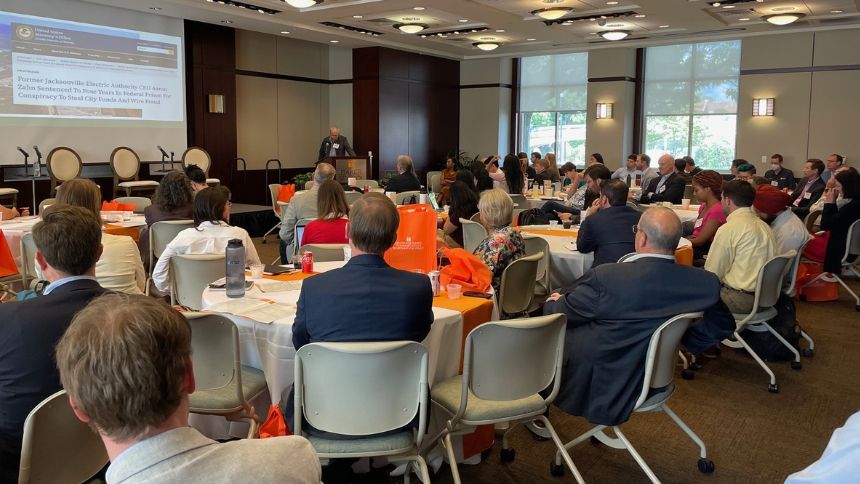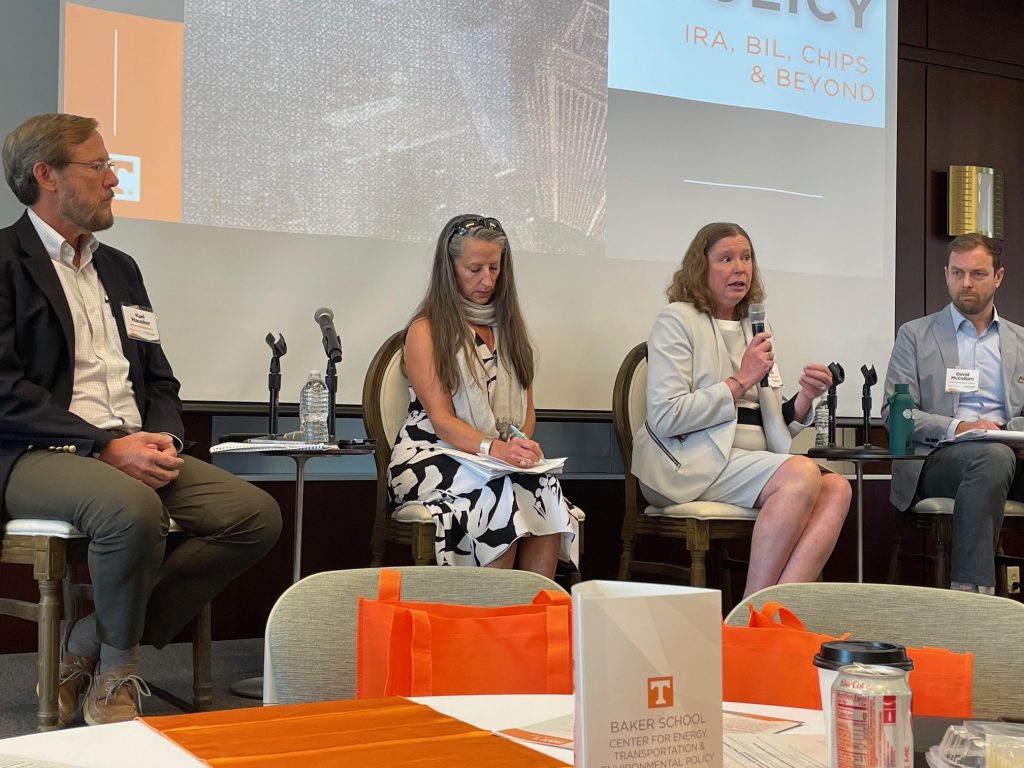
Enough talking, let’s start building
That's the message that former Department of Energy Deputy Secretary Daniel Poneman delivered in a keynote address at the “Southeast Energy Policy Forum.”
“It’s time to stop talking and start building,” Daniel Poneman said about nuclear plants near the end of his keynote speech on Wednesday during the first day of the second annual “Southeast Energy Policy Forum.”
Hosted by the Baker School for Public Policy and Public Affairs at the University of Tennessee, Knoxville (UTK), the event drew a near-capacity crowd less than two weeks after another conference – the “Nuclear Opportunities Workshop” hosted by the East Tennessee Economic Council – drew more than 600 attendees.
Calling the East Tennessee region the right place to spearhead the nuclear renaissance, the former Deputy Secretary of Energy said that the first action that is needed is regulatory reform.
“I love innovation but we need an Eisenhower and Rickover moment,” Poneman said, referring to former President Dwight Eisenhower and U.S. Navy Admiral Hyman Rickover. President Eisenhower was best known for his Atoms for Peace speech before the United Nations General Assembly on December 8, 1953, while Admiral Rickover directed the original development of naval nuclear propulsion and controlled its operations for three decades as director of the U.S. Naval Reactors office.
“There is no place better positioned,” he added, citing what we frequently refer to as the “Big 3” – Tennessee Valley Authority (TVA), Oak Ridge National Laboratory (ORNL), and UTK.
Noting that “grave negative trends in climate change have brought nuclear back,” Poneman said the challenge is to “unleash the power of the atom without destroying the world.”
He was referencing the good and bad aspects of nuclear – a clean source of energy needed to address the exponential growth in energy demand, fueled by electric vehicles and artificial intelligence, but also a source for weapons of mass destruction.
Much of the local interest in East Tennessee is focused on the Clinch River site and the hope for small modular reactors (SMRs), but Poneman said that SMRs are not the solution alone.
“People are looking at large reactors again,” he said, emphasizing yet again that “we must restore U.S. leadership in nuclear on the world stage.”
Poneman praised Third District Congressman Chuck Fleischmann for his bipartisan approach to getting things done and said there must be a more aggressive approach to partnering with other countries. The Congressman will deliver a keynote on Thursday ahead of the Forum concluding around 5 p.m.

Other Sessions
It was a jampacked afternoon that featured two panels and three individual presentations.
- There was a panel that discussed “Energy Policy” at the federal level that included the “Bipartisan Infrastructure Law,” the “Inflation Reduction Act (IRA),” and the “CHIPS and Science Act.” Moderated by David McCollum who is both an ORNL Distinguished R&D staff member and a joint faculty appointee in the Baker School, the panel included Molly Cripps, Director of the State of Tennessee’s Office of Energy Programs; Karl Kausker, Senior Fellow at the World Resources Institute; and Casey Norris, Federal Funding Project Management Office Lead for TVA. Our takeaway from that discussion was one word: “patience.” Things are taking longer than they should but, in the end, it will be good for the state.
- Scott Holladay, an Associate Professor of Economics and a joint faculty appointee with the Baker School, moderated a panel on the topic of “Digitization: Unleashing Organized DERs for Renewable Flexibility and Decarbonization.” It featured Angela Chan, Microgrid Sales Engagement Leader with Schneider Electric; Scott Sluder, Senior Research staff and Co-Lead of the Sustainable ORNL Program; and David Wade, Chief Executive Officer at Chattanooga’s EPB.
- Immediately after the previous panel, Harrison Fell, Associate Professor at North Carolina State University, made a return appearance – he was a speaker in 2023. His topic was “Identifying Additional Policies Needed to Fully Unlock the Benefits of the IRA.”
- The two final speakers were Nathan Richardson, Professor of Law at Jacksonville University, who spoke about the implications on environmental policy from the Supreme Court’s Chevron decision, and Robert Harris, Assistant Professor of Economics at the Georgia Institute of Technology, who presented results of a survey that assessed individual’s willingness to pay more for reliable electricity such as after hurricanes.
Like what you've read?
Forward to a friend!

